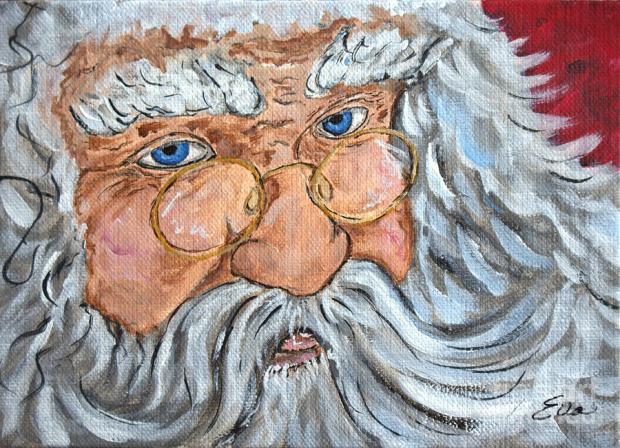
I’ve noticed over time that a lot of us who have been raised by Narcissists have certain traits in common.
For many of us, these were developed as coping strategies for our survival when we were children. Whilst they may have been useful as a child, some become maladaptive patterns as an adult, restricting our life experiences, leaving our outlook of life to be through the eyes of the narcissist, as we never had much of a chance to develop our own.
Sometimes I can tell when I meet some-one who has been raised by a narcissist. There is some sort of familiarity or an understanding that we have both been through the same turmoil, signalled through our body language towards each other or us having a similar shared reaction if we are both around a narcissist at the same time.
After gaining awareness into my own childhood and opening up to my friends, I found that a lot of them had also had some life changing contact with a narcissist at some point in their lives. It seems odd, but the victims of the narcissist not only attract narcissists into their lives but also attract other victims. Maybe it is a way of us unconsciously relating to others pain, to try to heal others as we heal ourselves.
The following traits seem common amongst those of us that have been raised by the narcissist.
1. We have an odd relationship with authority.
Whether it be our bosses at work, our teachers at school or the leader of our group of friends, our relationship with authority tends to be affected.
We find ourselves on guard, unable and unwilling to be ourselves. We struggle to understand how other employees can call their bosses by their first name or go out for drinks with them with such ease.
Instead, we become very good students or employees. Our skills at catering to the narcissistic ego has been taught to us from a young age. We know how to make our boss feel superior, in control and powerful. We are often very successful at working up the ladder.
When we are in a group, we find ourselves being drawn to understand the mind of the leader. This is of no surprise, considering how we have spent years trying to make sense of why the narcissist caused so much confusion within our lives.
In a way, this is a useful survival strategy. The fact that we are disciplined in the art of pleasing our superiors can work in our favour and when skilled can make our working lives very secure.
On the other hand, our difficulty in developing a more relaxed relationship with authority may leave us in a permanent position of formality, unable to progress the relationship to one with more meaning.
We struggle to lead others, for we detest so much the feeling of being led. Being stuck in a position of being wary around authority, naturally pleasing, we gradually detest our superiors, feeling suffocated at our difficulties in standing up for ourselves and our own needs, living instead of constant fear of upsetting our master.
2. We find it difficult to say NO.
Being raised by a narcissist would mean that you have spent a of of time doing things you didn’t want to do. You may have had to go out for dinner after you had already eaten, attended family parties despite being ill, studied subjects at school that you had no interest in, embarked on a career that you had no passion for or even married some-one who is a stranger to you, just to appease the narcissistic parent.
Our narcissistic parent may have been in a relationship with a dependant person and if so we would have grown up watching how one person always seemed to give in to the other. The result is that it may seem normal or natural for one person to follow the other and odd as to how a relationship of equality would actually work.
We find it difficult to say NO not just because of fear of offending the other person. It is also that we fear the abandonment, the expectation of silent treatment or other abuse that we would have experienced as children just for stating our views.
In its worst form, we become paranoid that if we are to reject another person, it will result in a rejection by all those who know the narcissist, akin to the feeling of being told off by extended family members as a child for some-thing that wasn’t true or wasn’t our fault, due to the narcissistic parent projecting the blame onto us as he or she was incapable of mustering any responsibility for his or her own actions or behaviour. In my case, I was the scapegoat for being late and the explanation given for my mother’s constant level of stress.
3. We are highly self critical
I spoke in my post on awareness of abuse by narcissists on how, when some-one has little self esteem, they lose the ability to see the world through their own eyes, instead seeing the world through the eyes of the narcissist.
For those of us who were raised by a narcissist, we may never have had the opportunity to develop any self esteem in the first place.
Hence, we spend our lives seeing the world through the narcissist’s eyes, where our values, beliefs, aspirations and accomplishments don’t matter.
As a result, many of us will struggle to feel any sense of happiness on our birthday, or when we pass an exam, or get married or any other accomplishment. We will believe as we have been taught to believe, that our accomplishments were solely due to our narcissistic mother or father, whilst we only are responsible for the negative consequences of being raised in the self image of a narcissist.
4. We have anger that we keep hidden
When I meet some-one who can appear to smile genuinely when they are wronged, I question whether they have been raised by a narcissist, or what abuse they have faced in their youth. We have an uncanny ability to be able to hide our emotions. Having lived in fear of the impact of showing our disgust towards our parents, our mastery in this is of no surprise.
What this leaves us with is a harbouring of intense inner feelings of anger, which we keep stored and pent up, hidden with a smile and forgotten by ourselves through either dissociation into a constant numb like state or otherwise through another form of distraction.
Unfortunately, our anger following years of abuse doesn’t simply disappear. It remains within us and facing up to this part of us is difficult. But, who can blame us for being angry?
Some of us may have found a safe outlet for our anger. Many of us will be extremely creative and may use music or writing to process our intense feelings. We may eventually develop a strong desire to protect others or to have an opportunity to defend and speak up after years of neglecting this part of ourselves- many of us may find solace in a career in law, the police force or medicine.
What can we do now?
One thing us adult children of narcissists know is that we can create a positive out of any negative situation.
We can start by recognising these traits within ourselves.
We can take time to celebrate our birthdays and accomplishments, no matter how small, and learn to believe our accomplishments to be ours.
We can develop seeing the world through our own eyes, rather than seeing the world through the narcissist’s eyes.
We can learn to say NO regularly and monitor our feelings through the process, including the anxiety, fear and paranoia. We can start to recognise that it is completely acceptable and within our rights to say no and that our emotional response is likely related to the reality of the past rather than the present.
We can learn to develop our emotional outlet to be used constructively to help ourselves or others and not allow it to affect us in self destructive ways. We can accept that we are angry about our past and not blame ourselves for this very natural feeling.
Most importantly, we can learn to love and care for ourselves.





